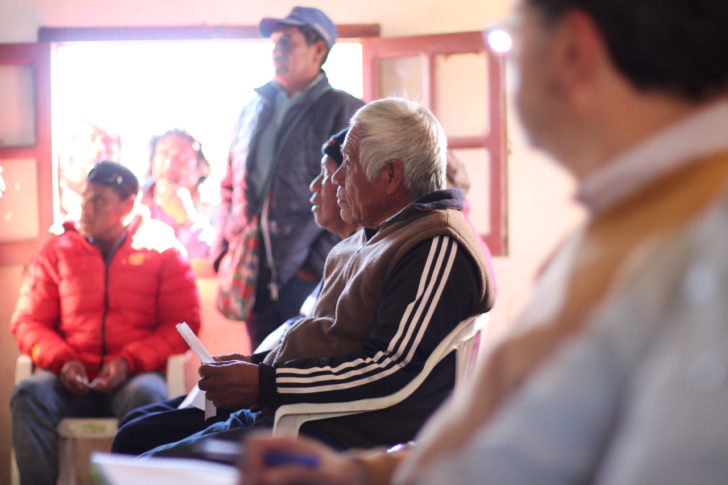On Thursday, April 2, The Inter-American Court of Human Rights rendered public its decision on the case “Indigenous Community Members of the Lhaka Honhat (Our Land) Association Vs. Argentina”. The ruling states that the Wichí (Mataco), Iyjwaja (Chorote), Komlek (Toba), Niwackle (Chulupí) and Tapy’y (Tapiete) peoples are entitled to their ancestral land in Northern Salta province and a single deed to the community property must be delivered to them within set delays.
The judgment pinpoints a series of rights violated by the Argentine government, such as the failure to implement the necessary mechanisms to guarantee the right to collective ancestral land property, not having presented a deed to the property for the association and absence of the previous consultation with the communities on modifying their territory. After more than 20 years of litigation, the Inter-American Court granted a historic victory to the indigenous communities of Lhaka Honhat in response to a lawsuit filed by CELS in 1998.
The Inter-American Court underlines that the changes in the community’s lifestyle and cultural identity are the consequence of the interference of foreign activity on their territory. This interference impacted on the traditional food supply of the hunter-gatherer peoples and on their access to clean water. Hence, this is the first time the Inter-American Court sets a precedent on the right to water, food, a healthy environment, and cultural identity.
Argentina is required to take action diligently on these issues in the context where many indigenous people, especially children, have died of hunger and dehydration since the beginning of the year on this land. Along with Lhaka Honhat, we sent the government a petition requesting urgent action this past February.
Regarding territory, the ruling establishes that within a period of a maximum of 6 years, the Argentine State must limit and mark the land for which it will then concede a single deed to the undivided territory for the Indigenous communities of Lhaka Honhat, ensure the relocation of the Criollo population encouraging voluntary departure, remove all fences and cattle belonging to Criollos, among other obligations.
Regarding food, water, environment, and cultural identity, the Court ordered Argentina to present a report identifying the obstacles and critical situations with which the Indigenous population is faced and a plan and timeframe to correct them within 6 months. This plan of action will be elaborated in dialogue with the communities and its implementation will be immediate from its presentation.
You can read here in Spanish the summary of the sentence and the full sentence.

